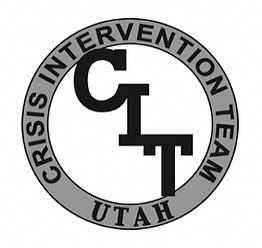
“I cannot overstate the vital importance of the CIT (Crisis Intervention Team) program within our communities. Having been involved at various levels over the past 18 years, I have personally observed the immense value it provides in the lives of individuals and families in crisis. It is absolutely critical that CIT be a part of every community as we create, develop, and sustain crisis response systems. Our neighbors, community members, and friends deserve the very best crisis intervention resources we can offer.” In a well-functioning crisis response system, the mental health system is primarily responsible for educating the public about the availability of mental health services, reaching out to people who may need ongoing support, and responding to crisis events. Law enforcement should play a supportive role in situations where there is a safety or criminal concern, but generally should not be the lead agency simply because a mental health crisis has occurred. To do this, law enforcement officers deserve the very best training, tools, and support. This ideal is far from the reality for many communities, where crisis services are inadequate and police play a significant role in crisis response. Changing those systems is a slow and gradual process. Historically, law enforcement, who are often very task-oriented, have tried to address the issue on their own, or have been reluctant to relinquish primary crisis response responsibilities to an evolving system of care. Unfortunately, it’s simply impossible for law enforcement to create a safe and humane crisis response system on their own or to take on permanent responsibility for managing every crisis call for service. Instead, law enforcement must work with their partners, look for strengths in the community, and support mental health system partners in shouldering primary responsibility of crisis response services. When it is necessary, law enforcement should be able to respond to any situation with the best training, tools and support available. Law Enforcement should be able to respond to a mental health crisis with the expertise and support of a mental health professional. This helps to ensure the safety of the officers, the person in crisis, their family, and the community. Questions and AnswersShould all officers be trained in CIT?
What type of officers should self select?
Should new recruits be trained in CIT?
How many officers need to be CIT trained?
Why should law enforcement care about best practices?
What is the advantage of the State Certified CIT Program?
Does CIT work in both urban and rural communities?
How can law enforcement support a mental health response?
How can CIT help my community?
How can I know if my local law enforcement is following CIT best practices, claiming to follow CIT best practices or are not CIT trained at all?
I’m not a mental health professional, what do expect from me?
How does CIT lessen the burden on the criminal justice system as a whole?
Are CIT officers special units or patrol officers?
|
